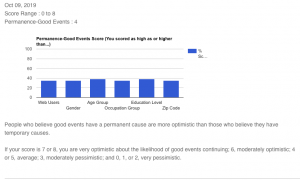Un poco sobre mi – ¡Hola! Me llamo Shruti y tengo dieciséis años. Soy una estudiante en UWCSEA East y vivo en Singapur con mi familia – mis padres. Yo tengo una hermana mayor pero ella vive en Nueva York por sus estudios. Este es mi blog y me gusta hablar sobre temas diferentes en espanol que es un idioma que estoy estudiando.
¡Hola Amigos! Hoy, voy a hablar sobre un programa de televisión que se llama Las Chicas Del Cable. La primera temporada de este programa tiene ocho episodios y el primero se estrenó el 28 de abril de 2017 en Netflix que es una plataforma donde la gente puede comprar una suscripción para ver películas y programas de televisión diferentes. De hecho esta programa de televisión ahora tiene cuatro temporadas.
Primeramente, ¿sobre qué es Las Chicas Del Cable? La historia tiene lugar en la ciudad de Madrid en 1928, cuando una empresa moderna de telecomunicaciones empezaba a funcionar. Una a una, la serie narra la historia de cuatro mujeres jóvenes – Lidia, Carlota, Marga y Ángeles, cuando empezaban trabajar para esta empresa – incluyendo a sus familias, intereses amorosos, amigos y memorias del pasado. Una porción significativa de este programa se concentra en las dificultades que las mujeres encontraban durante aquellos tiempos.
¿Que pienso yo sobre este programa de televisión? Yo creo que si eres una estudiante de espanol y te gustaría ver una serie para mejorar tu idioma como yo, este programa es perfecto para ti. No te preocupes si no entiendes toda los diálogos porque en ese caso puedes activar subtítulos en inglés. Tiene un poco de historia, misterio, comedia y romance. Un tema distintivo en esta serie es los derechos de las mujeres. Es muy educativo porque eran muy limitados al contrario que hoy. Por ejemplo, manifestarse por estos derechos no era seguro porque había mucha oposición por parte de la sociedad – especialmente hombres (a veces en el gobierno) con poder. Cuando empiezas esta serie, no puedes parar porque es adictiva. Personalmente, mi personaje favorita es Lidia porque yo creo que ella es muy fuerte y valiente. No quiero arruinar la historia para vosotros y por eso no voy a decir más pero daría a este programa cinco estrellas.
Finalmente, si decides ver o has visto Las Chicas Del Cable en el pasado, me gustaría leer tus pensamientos. También si tienes algunas recomendaciones para mi, avísame por escrito con un comentario.
Hasta la proxima vez,
Shruti.







